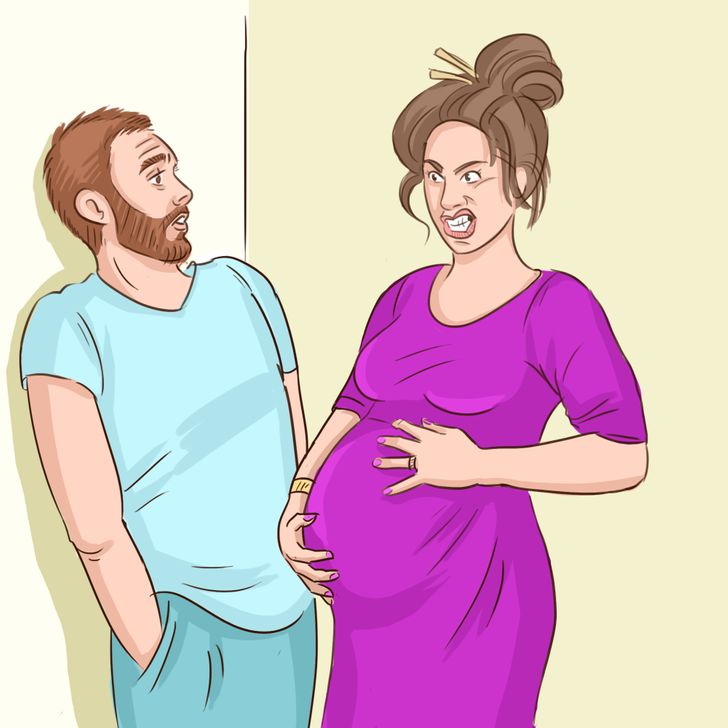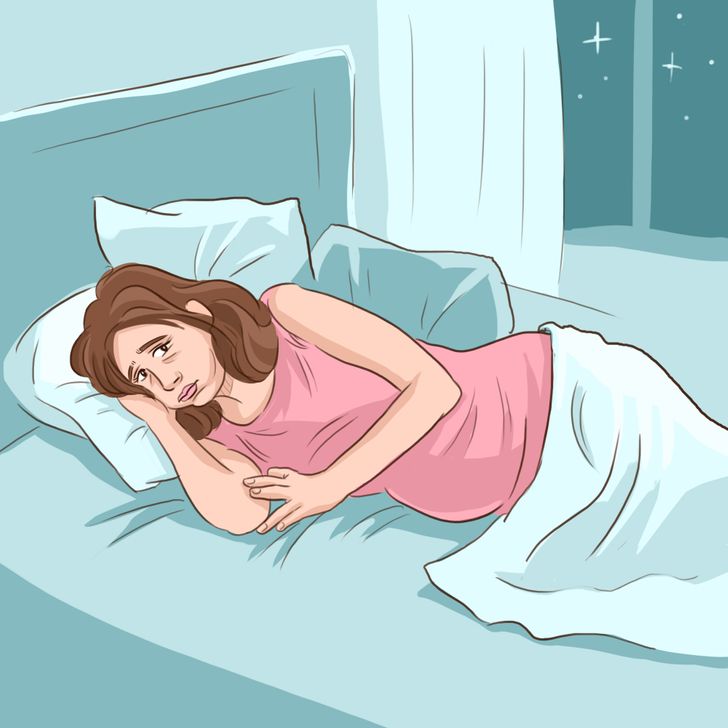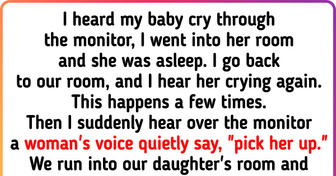Correct.
7 Things Pregnant Women Do That Might Affect Their Babies
There are so many misconceptions about pregnancy like, “expectant women need to eat for 2, aka twice as much” or “you need to stay away from coffee during all 9 months,” that it’s really hard to choose what to believe. But not all of these myths are completely wrong. So in this article, we’d like to tell you what types of behavior and actions it’s better to abstain from during pregnancy and what you can do instead.
We at Bright Side wish future mothers and babies the utmost health and want to share 7 things with you, that you need to be aware of.
1. Relaxing in a hot tub or sauna

Extreme heat in a sauna or a bath is a major concern during pregnancy. It may be relaxing, but it’s not good for your babies because they can’t regulate their body temperature while being in your belly. Some studies also suggest that the heat of a sauna may lead to serious complications to the future baby’s brain and spinal cord.
What you should do:
1. Don’t overheat yourself and don’t stay more than 10 minutes in a hot bath.
2. Take tepid baths that are the same temperature as your body.
3. Consult with your doctor, and if he/she says it is OK for you, just limit the time you spend in the sauna.
2. Eating too much sugar

A study showed that mothers who consumed high amounts of sugar during pregnancy had children with learning and memory skill issues. The same thing goes for sugar substitutes.
What you should do:
1. Eat more fruits, instead of sweets.
2. Lessen your soda intake.
3. Fighting and yelling

Fighting causes anxiety and depression, and that can harm your baby, especially their immune system and brain. Besides, yelling can be bad for the mother and lead to headaches, nausea, and sleep problems.
What you should do:
- Rest more.
- Get enough sleep.
- Meditate.
- Take a walk and breathe fresh air.
4. Crying

Crying during pregnancy is normal because you may become more emotional. But it can be tricky and you should pay attention to different symptoms like loss of appetite, feelings of guilt, sleeping too much, and loss of interest in any activity. These symptoms may be a sign of depression that may later lead to more serious consequences.
What you should do:
- If the symptoms last more than 2 weeks, speak to your doctor.
- Find some support, try talking to other moms or pregnant women.
5. Having sleep problems

According to researchers, 78% of women report more disturbed sleep during pregnancy than usual. This loss of sleep can cause a bad mood and nausea. A study also found that women who slept less than 6 hours per night had longer labors.
What you should do:
- Plan your sleep schedule.
- Try to exercise for at least 30 minutes per day.
- Drink lots of fluids during the day.
- If you can’t sleep, don’t force yourself, try to read a nice book, but don’t be active.
- Consult with your doctor about which position is the best for you to sleep in.
6. Leading an inactive lifestyle and overeating

Extra weight gain during pregnancy can lead to birth complications, fetal growth, and maternal weight retention after delivering the baby. Moreover, it can increase the subsequent risk of obesity for the child.
What you should do:
- Doctors recommend approximately 30 minutes of exercise for healthy pregnant women, most days of the week.
- Don’t forget about walking. It will keep you in shape and your brain will get some oxygen, which is important for your mental health.
-
Keep your diet under control. Normally, a woman needs to take in 2,000 calories a day, and there’s no need to change this amount in the first 6 months of your pregnancy. But in the last trimester, you should add an extra 200 extra calories every day.
7. Drinking too much caffeine

When drinking coffee, you should always remember that caffeine crosses the placenta and enters your baby’s bloodstream. Studies also found out that excessive daily caffeine consumption may negatively affect the fetus. In particular, pregnant women who drink 8 or more cups of coffee a day may have a higher risk of stillbirth.
What you should do:
- It is better to take care of your nutrition and to reduce your consumption of coffee. Therefore, 1 to 2 cups of coffee per day is OK.
Please keep in mind that all the information presented in this article is for informative purposes only. Don’t forget to consult your doctor about the things you should and shouldn’t do during pregnancy.
Do you know of any myths about pregnancy that some people still believe? Please share your knowledge with us below!
Comments
Related Reads
I Chose to Go to My Best Friend’s Wedding Instead of My Wife’s Birthday Party

A Woman Tried to Steal My Seat on the Plane Using an Unsettling Tactic

10+ True Stories With Endings No One Saw Coming

“Ruined Her Face”, Nicole Kidman’s Met Gala Look Sparks Concern

14 People Who Know What Being a Good Dad Is Really Like

14 Startling Stories From Shop Assistants That Astonished Them to the Core

15 Heartfelt Stories That Prove First Love Leaves an Indelible Mark

I Installed a Secret Camera After My MIL Insisted on Having Our Key

I Kicked My Stepsister Out of My Wedding—But Didn’t See the Twist Coming

Test: Find All the Errors in These 10 Illustrations

15 Chilling True Events That Will Haunt You

My DIL Broke My House Rules—I Made Her Face the Consequences
